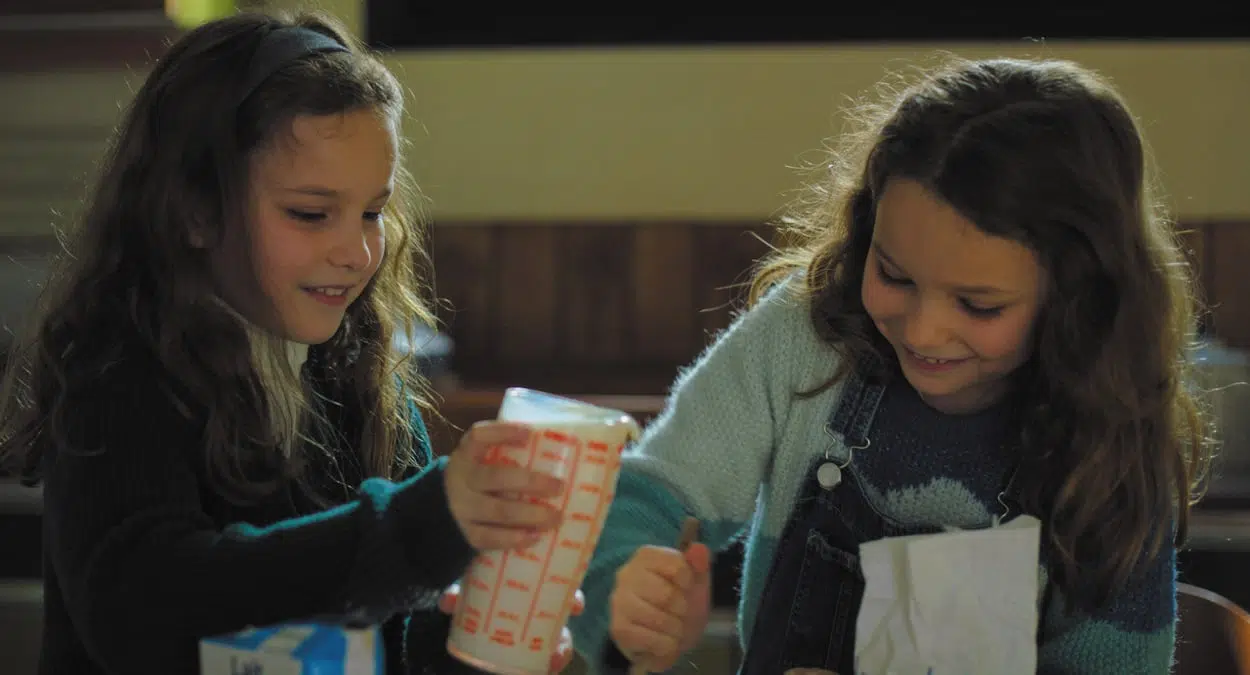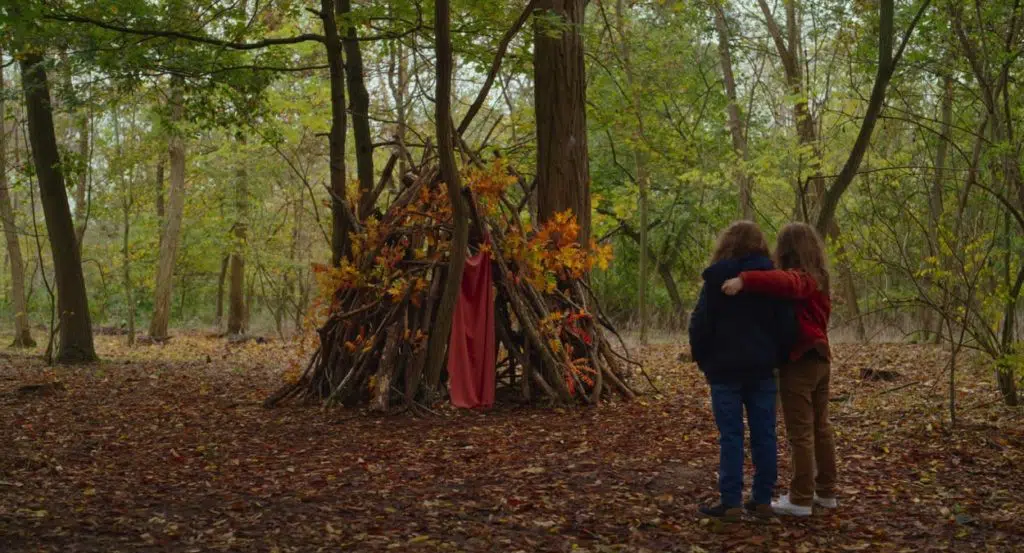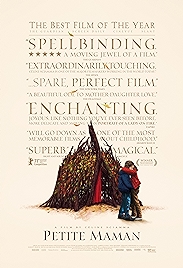Céline Sciamma’s Petite Maman takes such a massive turn at a certain point in its brief 1hr 12 minutes running time that it could only be spoilerish to mention it. Let’s just say she might have been watching Netflix’s German TV series Dark and leave it at that.
As to the rest of it, it’s absolutely classic Sciamma territory – sentimental education, always female – following on from Sciamma’s 2007 debut and taking in Tomboy, Girlhood and Portrait of a Lady on Fire, the last of which is definitely on a very short shortlist of the best movies of 2019.
Petite Maman may be brief but it’s so densely packed that if you’d paid to go and see it at a cinema – ticket price, transport, snacks, babysitting costs maybe – you wouldn’t leave feeling short-changed. It starts at a turning point for three females – a woman who has just died (Margot Abascal), the grief-stricken daughter (Nina Meurisse) who now has to clear out her childhood home, and the grand-daughter, Nelly (Joséphine Sanz), an eight-year-old who’s never had to deal with anything like this before and is finding it hard to integrate grandma’s death into her daily life. She’s also slightly distraught because she hadn’t quite properly said goodbye to a woman she obviously loved.
In scenes that are both emotionally significant and yet coolly presented, with the camera always at Nelly’s level, the action moves from grandma’s care home to her house, where Nelly has the run of the woods behind the house while her mother and father box things up and bring the curtain down on a life. Here, Sciamma’s eye for detail makes it all ring true. How cold and lifeless the house feels, the way meaning has attached to things almost totemically – that patch of 1970s wallpaper behind the fridge, the biscuit tins in a hall cupboard that probably contains sewing kit, or fuse wire and bent screwdrivers.
Out in the woods Nelly tries to build a den like her mother also built when she was a child, and there she meets a girl who looks uncannily like her and is also eight years old. Marion is played by Joséphine Sanz’s twin sister, Gabrielle, and so Sciamma is clearly playing with us. Here we enter spoiler territory and I’m not going any further in without a torch, but suffice to say that the IMDb describes this movie as a fantasy as well as a drama, and that Marion is going to help Nelly resolve the missed goodbye she wished she’d said.
It’s not a blunderbus revelation, by the way. Marion clearly looks very like Nelly, and Sciamma takes care to always have her wearing an Alice band so we can tell who’s who, but at first it just seems like a bit of quirky casting, perhaps brought about because this film was made in the teeth of one of the covid lockdowns.
But by dropping in little details about Marion, Marion’s mother and the house where they live, it becomes increasingly clear what’s going on and where Sciamma has taken us, but by pathways less travelled.
For the avoidance of doubt, it’s brilliantly conceived and magically done, and though the two young actors seem a bit wobbly early on – there are moments of self-conscious awareness of the camera – they seem to grow as they go. There are scenes later on, as Nelly and Marion play-act a cop interviewing a suspect and other generic TV staples, where they’re just perfect.
In among it all, in one little remark in particular, Sciamma also reveals that she’s got a novel take on time, casting a light on the notion that the future is in front of us, as we generally conceptualise it (those of us who aren’t Stephen Hawking, anyway).
Loss. A sense of place. The vagaries of time. Sciamma whips them all together with the lightest of touches. It’s a superb film from a writer/director at all-conquering levels of achievement.
Petite Maman – Watch it/buy it at Amazon
I am an Amazon affiliate
© Steve Morrissey 2021


